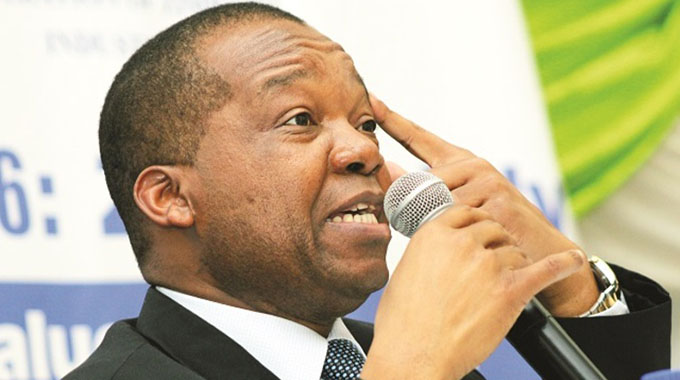JUST IN: ‘Zim economy on sounding footing for sustained growth’

Golden Sibanda – Senior Business Reporter
THE exponential rise in banking sector foreign currency account (FCA) holdings to US$1,1 billion and strong export performance this year are testimony that the economy is now on sound footing for sustained recovery and growth.
This was said by Reserve Bank of Zimbabwe (RBZ) governor Dr John Mangudya in an interview, pointing out that forex receipts went up by 18,2 percent to US$5,8 billion in the 12 months to November 2020.
Dr Mangudya attributed the significant growth in foreign currency nostro balances in the banking sector to improvement in exports, increase in Diaspora inflows and a better business operating environment.
The central bank chief said the year 2020 was one of the best performing years in terms of forex receipts despite the challenges by disruption to domestic and global economic activity and value chains from Covid-19.
Dr Mangudya said the US$1,1 billion nostro account holdings, which belong to individuals and private entities, were a national reserve from which the economy can tap into on a regular basis to fund production and imports.
The positive developments in the economy come on the back successes that have been recorded by the Government under the Transitional Stabilisation Programme (TSP), which has laid a strong foundation for the economy to grow.
These include elimination of budget and current account deficits, reintroduction of stable local currency (exchange rate stability), falling inflation, investment in key infrastructure, economic reforms and global reengagement.
After managing to stabilise the economy, the Government is now looking to build on the strong foundation which has been laid during TSP, through a series of interventions during the National Development Strategy (NDS1 2021/25).
“The money is foreign currency that is in the country and it is there to liquefy the economy. This is where the 30 percent surrender requirement for corporate and the 20 percent domestic deposits by retailers used for the auction comes from.
“The higher the holdings the better for the foreign currency auction system to sustain production and productivity, which stabilizes the exchange rate, prices and inflation, which is good for the consumer, investors and everyone,” he said.
Zimbabwe introduced a Dutch foreign currency auction system in June this year, to replace the interbank that was in place until March this year, and temporarily displaced by a fixed rate regime resulting in rate stability.
Exchange rate volatility, in the absence of an effective market led exchange system to guide players, resulted in exponential rise in inflation as prices went on a rampage driven by speculation and fear of what tomorrow held.
The governor said the banking foreign currency holdings came from exports, Diaspora remittances, loan transfers and various other sources, reflecting growing productivity and fledgling confidence in the economy.
“The banking sector foreign currency deposits stand at US$1,1 billion and this reflects holdings for Zimbabwean individuals and entities and the money is derived from exports, Diaspora remittances, loans and other sources.
“We have seen significant improvement in foreign currency holdings. If you look closely you see that exports have gone up and as at November 30,2020, exports had gone up 18,2 percent compared to 2019 from US$4,9 billion to US$5,8 billion.











Comments